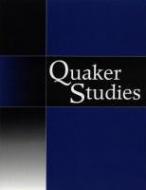
Abstract
This essay examines three themes relating to the beliefs and actions of Mary Morris Knowles (1733-1807) as a devout Quaker woman, incorporates new research and places her in multiple contexts within eighteenth-century Quakerism. Considering Knowles in relation to the themes of self and collective identity, her concepts and practices of womanhood in the private, social and public spheres and her theology and religious practices raises new questions about Quakerliness, or ways of being a Quaker. How wide and diverse was the spectrum of behavior considered appropriate for a Quaker woman and did it change over time? Was it possible for Knowles to be devout as well as worldly and did that make her a 'gay' Quaker? The answers to these questions indicate the need for further research to assess various ways of being a Quaker in eighteenth-century England and the extent and prevalence of Quietism.
Recommended Citation
Jennings, Judith
(2010)
"Mary Morris Knowles: Devout, Worldly, and 'Gay'?,"
Quaker Studies: Vol. 14:
Iss.
2, Article 5.
Available at:
https://digitalcommons.georgefox.edu/quakerstudies/vol14/iss2/5
Included in
Christian Denominations and Sects Commons, History of Christianity Commons, Lesbian, Gay, Bisexual, and Transgender Studies Commons

New Location Notice
The QSRA now publishes current issues through Liverpool University Press, available to subscribers only, at this location: http://online.liverpooluniversitypress.co.uk/loi/quaker.